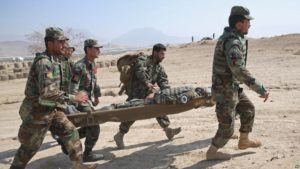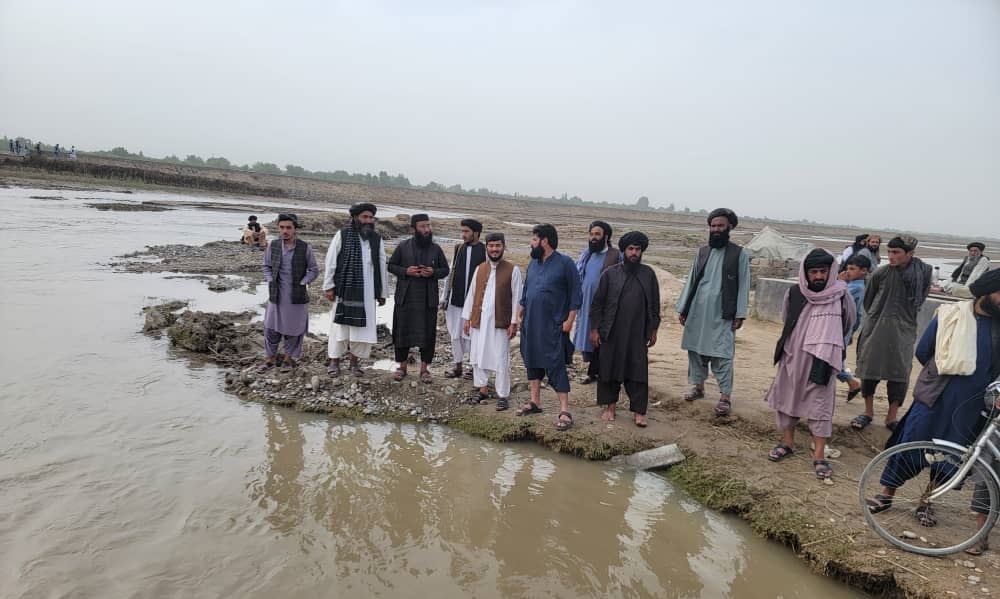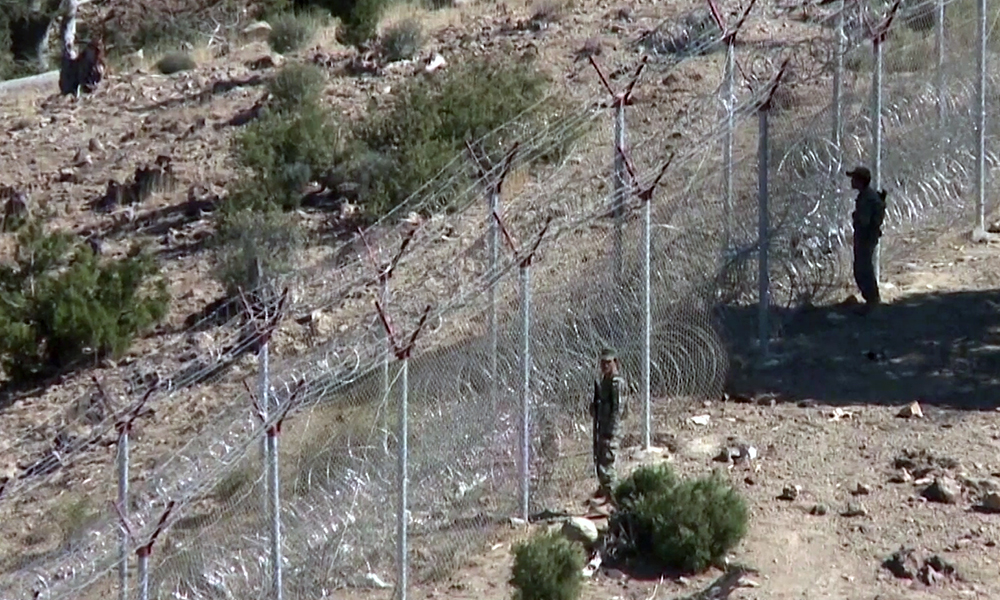Latest News
Afghan Army Faulted for Sloppiness with Blood-Type Testing

 Sloppy blood collection and identification by Afghanistan’s army may have led to the deaths of injured soldiers who received the wrong blood type, a U.S. watchdog said.
Sloppy blood collection and identification by Afghanistan’s army may have led to the deaths of injured soldiers who received the wrong blood type, a U.S. watchdog said.
Its report also questioned whether blood was being properly tested for disease.
Afghanistan’s Defense Ministry rejected the report. Spokesman Dawlat Waziri said blood is tested at the hospital before being given to wounded soldiers and he said the ministry had no record of soldiers dying because of wrong blood type.
He also said Friday the blood of new recruits is tested in the hospital and chastised the special inspector general’s office for not sharing its ground research information with the defense ministry.
The Special Inspector General for Afghanistan Reconstruction said in its report late Thursday that about 15,400 soldiers did not have their blood type tested before entering the army and the method of identifying the blood type of thousands more was suspect.
The data on recruits from between January and July 2017 would mean the blood type of at least 9 percent of the roughly 195,000-soldier army is unconfirmed.
The report said there were no records of the blood type of nearly 50 percent of all defense ministry personnel, including soldiers. Yet all defense ministry personnel are required to be tested for both blood type and infectious diseases, says the inspector general, a watchdog agency mandated by the U.S. Congress.
Shoddy record-keeping means the military has no way of knowing which soldiers have been tested for infectious diseases and which blood might be tainted.
“This information is critically important because successful blood transfusions for wounded soldiers require that donated blood be the appropriate type and free from infectious diseases,” the report said.
During the course of its investigation, the inspector general said, it received information that “soldiers have been killed from receiving the wrong type of blood” during treatment for injuries suffered in combat.
Even the blood types that are registered are suspect because new recruits, who must pay for the tests on their own, have gone to doctors not affiliated with the military and who may have submitted fraudulent documents without conducting the tests, the report said.
The data collection system “was entirely reliant on unaffiliated doctors to perform this critical, required service, and the command had no assurance that the tests were actually conducted or accurate,” said the report.
Written by AP

Latest News
World powers trying to prevent IEA’s economic and political progress: Baradar

Mullah Abdul Ghani Baradar, deputy prime minister of the Islamic Emirate of Afghanistan (IEA) for economic affairs, has said that the great powers of the world are seeking to prevent the economic and political progress of the IEA.
Baradar made the remarks at the graduation ceremony of troops from the 201 Khalid Ibn Walid Corps training academy.
“The great powers of the world view the Islamic Emirate with suspicion and are still trying to prevent our economic and political progress, but we must be wise and alert,” he said.
No country has yet officially recognized the IEA government, almost three years after their take over.
Sanctions imposed on Afghanistan’s banking sector have meanwhile had negative effects on the country’s economy.
The international community has set conditions for the recognition of the Islamic Emirate, including ensuring of women’s rights and forming of an inclusive government.
However, the Islamic Emirate claims that women’s rights are ensured according to Sharia law and that there are representatives of different ethnic groups in the cabinet.
Latest News
Southern Afghanistan records one of wettest Aprils in 40 years

Southern Afghanistan recorded one of its top three wettest Aprils in the last 40 years, a specialist U.S.-based agency said on Monday.
In general, the precipitation in April has supported standing crops in northern, northeastern, and western parts of the country, but flooding has affected around 10,000 acres of agricultural land, particularly in eastern and southeastern parts of the country, the Famine Early Warning Systems Network (FEWS NET) said in a report.
The recent precipitation has also positively contributed to pasture conditions across the country, except in the central highlands, where temperatures are still typically low, according to the report.
As the precipitation season concludes, household access to food and income is expected to improve with the start of the harvest and agricultural labor opportunities, the report said.
Latest News
Iranian official: Only vulnerable points of Afghanistan’s border will be walled and fenced

An Iranian security official has said that the entire border of Iran with Afghanistan will not be fenced, rather barriers will be created only at vulnerable points.
Iranian army has announced that the plan to create barriers at the border with a four-meter concrete wall, barbed wire and fence will be implemented within three years.
“In some northwestern and eastern borders, there are threats from the other side of the borders that we are countering,” said Qassem Rezaei, Iran’s deputy police commander.
He added that drug trafficking, human trafficking, and even terrorist infiltration may take place through these borders.
Meanwhile, the Minister of Interior of Iran Ahmad Vahidi has announced that over 1.3 million illegal foreign nationals have returned to their country in the past year.
He added that illegal citizens should leave Iran as they are not allowed to stay.
-

 Sport5 days ago
Sport5 days agoSorkh Poshan Khafi and Khadim FC winners in their ACL matches
-

 World4 days ago
World4 days agoWhy Palestinians can count on American students but not Arab allies to protest
-

 Sport4 days ago
Sport4 days agoAbu Muslim and Attack Energy win in ACL matches
-

 Sport5 days ago
Sport5 days agoFour Afghans included in Refugee Olympic Team for Paris 2024
-

 World5 days ago
World5 days agoCalifornia police flatten pro-Palestinian camp at UCLA, arrest protesters
-

 Regional4 days ago
Regional4 days agoTurkey halts all trade with Israel, cites worsening Palestinian situation
-

 Latest News5 days ago
Latest News5 days agoFive dead, 24 injured in traffic accident in Samangan
-

 Science & Technology4 days ago
Science & Technology4 days agoChina launches historic mission to retrieve samples from far side of the moon
















